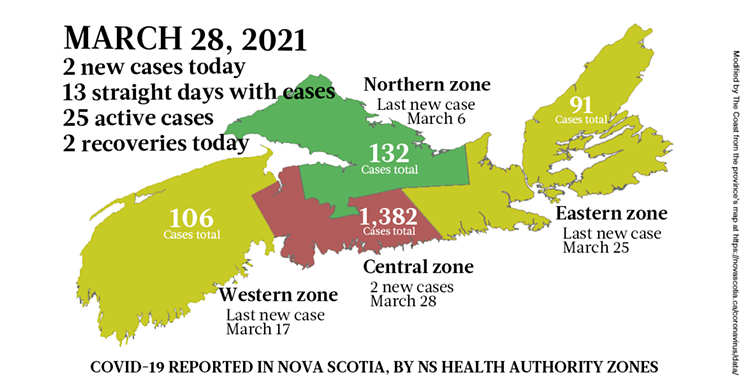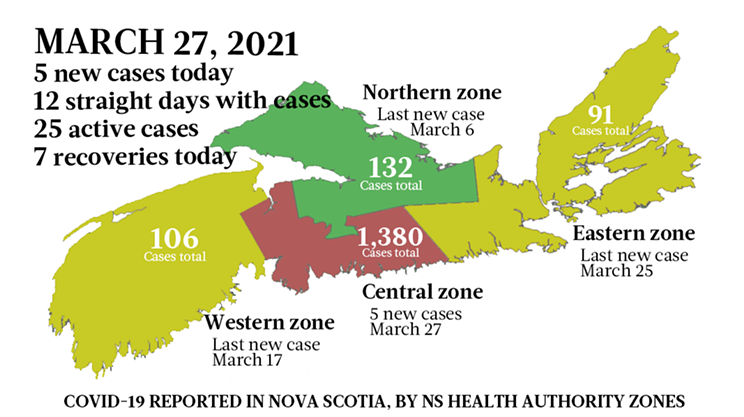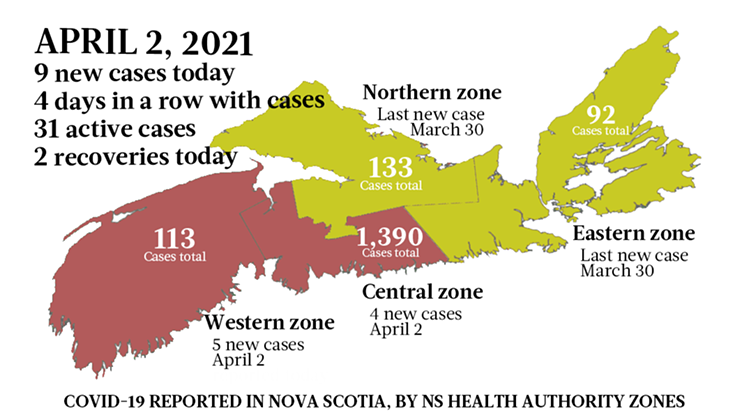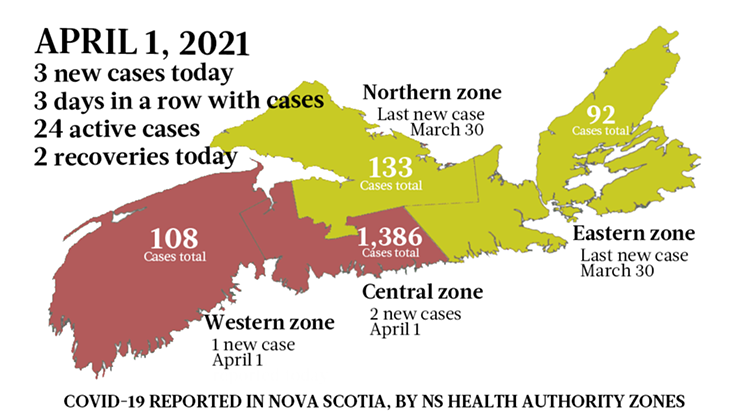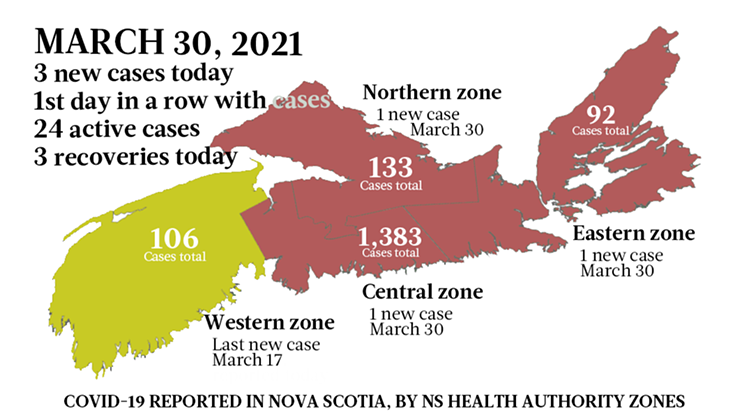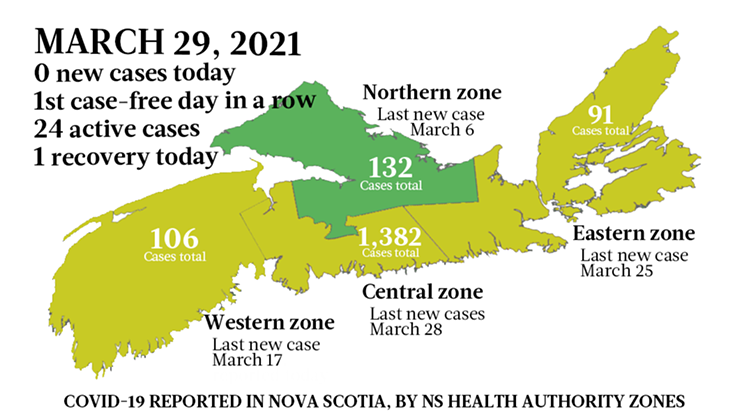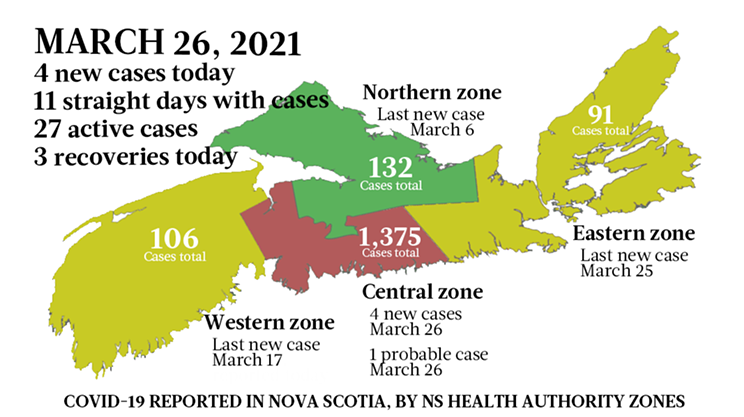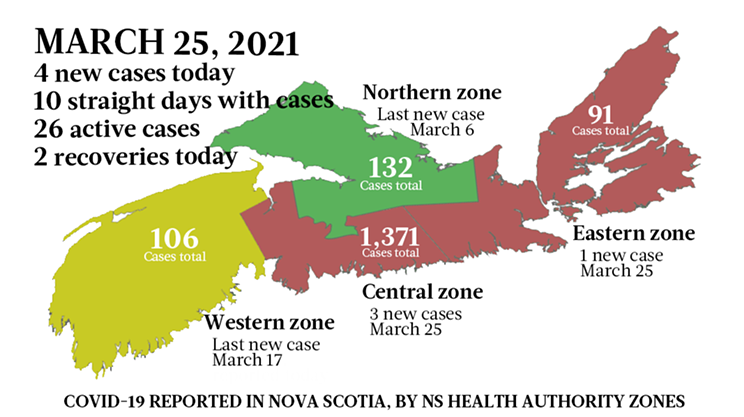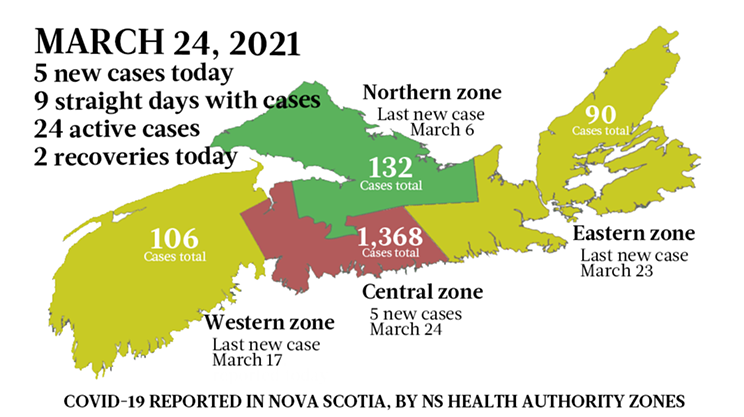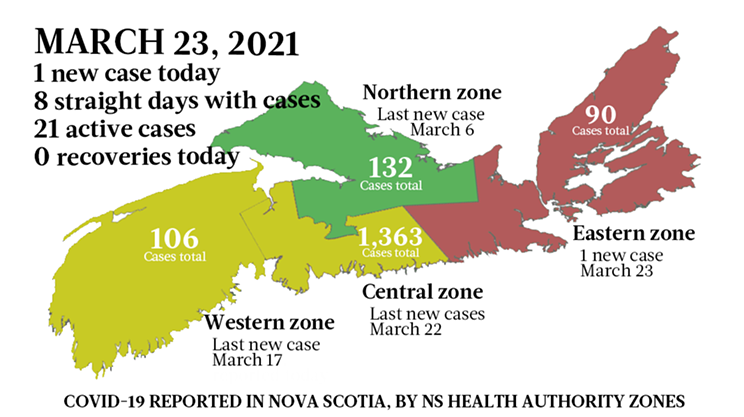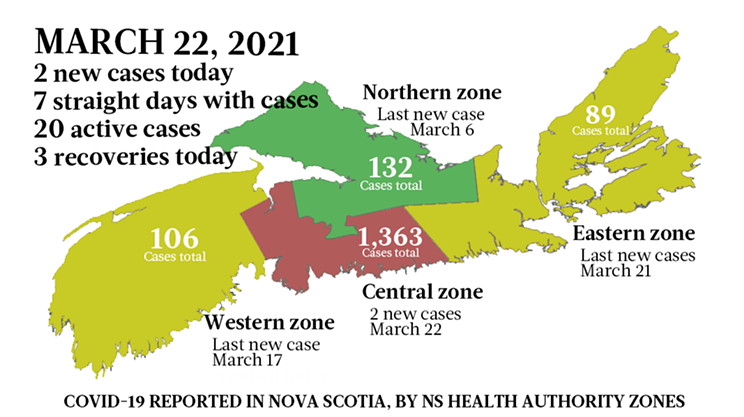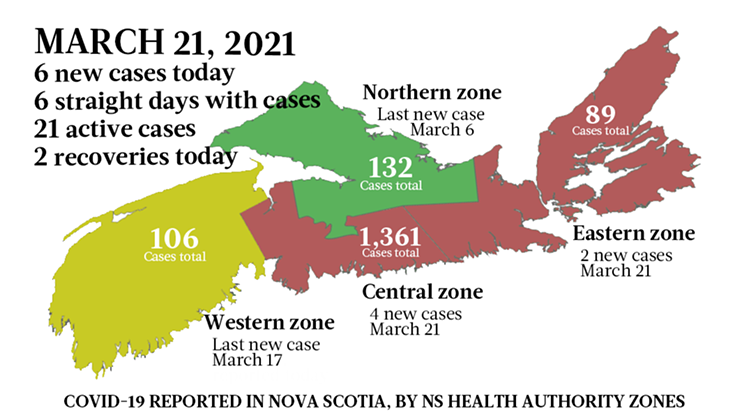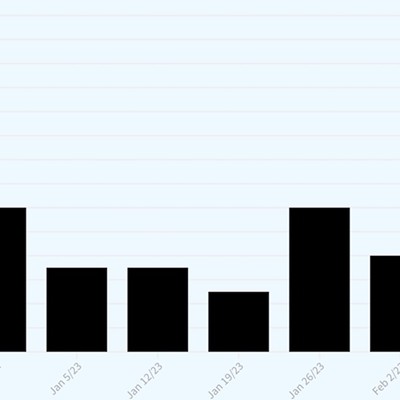The province is announcing two new COVID-19 infections in its daily pandemic update. "The cases are both in the Central Zone," the province says. "One is related to travel and the other is under investigation."
A case under investigation is always a drag. Also a drag in this report, a person with C19 had to go into the hospital for treatment. So with the two patients recovering today, Nova Scotia now has 25 active cases, and one hospitalization. (Our table below reveals where the new and active cases are at the community level, not just the more generic health zone level.)
But there is a bigger, scarier drag in Sunday's report that involves someone who must live at the King's Wharf development on the Dartmouth waterfront. As we've talked about before, to track the spread of coronavirus variants every positive test in the province gets collected, and every two weeks that batch of samples is sent to the National Microbiology Lab in Winnipeg for genetic sequencing. Clearly the NML report for Nova Scotia's latest batch just arrived, because the province is announcing the results today: It turns out a recent Dartmouth case was from the B117 mutation of the virus AKA the UK variant.
Although this case was closed and there is no indication of community spread from the patient, out of "an abundance of caution" Nova Scotia public health is asking all residents of the King's Wharf to get tested for C19. Also, "anyone who worked or visited any residences or businesses at this location from March 10 to March 27" should get tested. And that testing is "whether you have symptoms or not."
In the provincial update, Strankin are quoted about the dangers of C19 variants. “While Nova Scotians have done well to keep our case counts low, we don’t have to look far to see examples of how fast the variants have spread in other provinces,” says Iain Rankin, premier. “Identifying a variant is a reminder that our situation can change very quickly. We must remain cautious.”
Robert Strang, top doc, takes a slightly different tack. "Our strong adherence to public health protocols has helped us contain variant cases to date. We know that the variants spread more rapidly so it is very important that we are diligent with our testing and other public health measures each time a new case is identified.”
Nova Scotia has now identified 14 cases of B117 and 10 cases of 501V2 (found first in South Africa). We've had no know cases of P1, the mutation that made this headline just yesterday: "Covid-19 Variant Rages in Brazil, Posing Global Risk."
Where Nova Scotia’s COVID-19 cases are on Sunday, March 28
| HEALTH ZONE & NETWORK | NEW CASES | CLOSED CASES | ACTIVE CASES |
|---|---|---|---|
| Western zone totals | 0 new | 0 closed | 1 active |
| Yarmouth | - | - | - |
| Lunenburg | - | - | - |
| Wolfville | - | - | 1 |
| Central zone totals | 2 new | 1 closed | 22 active |
| West Hants | - | - | - |
| Halifax | 2 | - | 7 |
| Dartmouth | - | 1 | 8 |
| Bedford | - | - | 4 |
| Eastern Shore | - | - | - |
| Northern zone totals | 0 new | 0 closed | 0 active |
| Truro | - | - | - |
| Amherst | - | - | - |
| Pictou | - | - | - |
| Eastern zone totals | 0 new | 1 closed | 2 active |
| Antigonish | - | - | - |
| Inverness | - | 1 | 2 |
| Sydney | - | - | - |
TABLE NOTES The totals for the health zones (Northern, Eastern, Western, Central) may be different than the totals you'd get by adding up the numbers in the Community Health Networks that make up each zone, because the province doesn't track all cases at the community network level. The zone totals reflect every case in the area; the community network numbers only show cases that can be localized to a region inside the bigger area. The names of the community networks here have been adapted/shortened for simplicity (click to download the province's PDF map with the exhaustively complete network names). All data comes from the Nova Scotia COVID-19 data page. We use a dash (-) instead of a zero (0) where applicable in the health network numbers to make the table easier to read.

